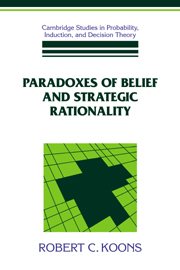Summary
My principal aims in writing this book are two. First of all, I am attempting a defense of a thesis that I call “Computationalism,” namely, the thesis that the objects of psychological attitudes (like belief and intention) are abstract objects which are structured in a way that mirrors the syntactic structure of sentences. Moreover, I intend to defend a version of computationalism that is relatively “type-free” in the sense that it permits these objects of belief and other attitudes to be genuinely self-referential or self-involving. I will defend this thesis against one particular objection: the claim that such a type-free, computationalist approach to the psychological attitudes is untenable because it leads to theories afflicted by versions of the liar paradox. My defense against this objection will be twofold: I will argue that the abandonment of computationalism is neither sufficient nor necessary for averting liar-like paradoxes.
Second, I will make a case for thinking that an understanding of liar like paradoxes is crucial to those branches of social science (like economics, game theory, public-choice and social-contract political theory, organization theory, and Gricean linguistics) that employ some form of the rational agent model. A notion that plays an important role in many applications of this model is that of common knowledge, or mutual belief. I claim that a liar-like paradox will emerge in any adequate theory of this notion that is sensitive to issues of computational complexity. Moreover, I argue that solving certain puzzles involving the notion of reputation depends on recognizing the role that liar-like paradoxes play in generating these puzzles.
- Type
- Chapter
- Information
- Paradoxes of Belief and Strategic Rationality , pp. ix - xiiPublisher: Cambridge University PressPrint publication year: 1992

